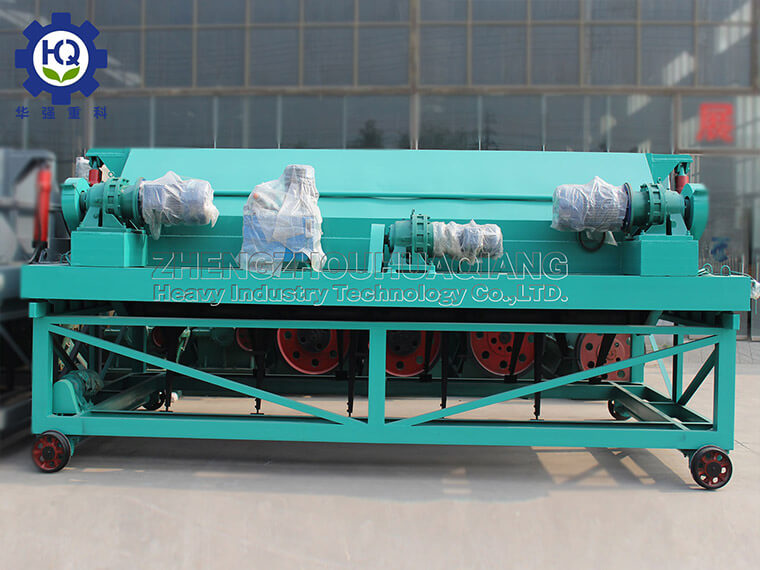Organic fertilizer composting machine can not only effectively convert agricultural waste such as livestock manure and plant residues into high-value organic fertilizers, but also bring various economic benefits to farmers, thereby increasing agricultural income. The following is a specific analysis on how to achieve this goal through organic fertilizer composting mechanism:
Enhance land output
Improving soil structure: Organic fertilizers are rich in humic acid and beneficial microorganisms, which can enhance soil water and fertilizer retention capacity, improve soil particle structure, increase soil porosity, and long-term application can help restore and improve land productivity.
Increasing crop yield: Organic fertilizers contain abundant nitrogen, phosphorus, potassium, and other trace elements, which can meet the nutrient requirements of crops at various growth stages, promote root development, enhance photosynthesis, and significantly improve crop yield and quality.
Reduce dependence on chemical fertilizers: The application of organic fertilizers can partially replace chemical fertilizers, reduce the cost of chemical fertilizer input, and also alleviate problems such as soil compaction and salinization caused by excessive chemical fertilizers.
Reduce production costs
Recycling agricultural waste: Waste such as animal manure and straw, which could have caused environmental pollution, are turned into valuable resources, reducing agricultural production costs and achieving effective resource reuse.
Energy saving: Compared to industrialized chemical fertilizers, the production process of organic fertilizers has lower energy consumption, especially when using automated turntables, which significantly reduces labor costs and mechanical operating expenses.
Reduce pesticide use: Healthy and active soil ecosystems can naturally resist pests and diseases, and beneficial microorganisms in organic fertilizers also help control pests and diseases, indirectly saving pesticide costs.
Explore sources of income
Selling organic fertilizer products: High quality organic fertilizers have a high selling price in the market, especially for ecological farms and consumers who pursue pollution-free agricultural products. Homemade organic fertilizers may become an additional source of income.
Brand effect: Products grown with organic fertilizers are often favored by the high-end market, which is conducive to creating a green and healthy agricultural product brand image, enhancing product added value, and expanding sales channels.
Policy subsidies and support
Many governments in countries and regions encourage green agricultural development, and the production and use of organic fertilizers can receive certain policy incentives and financial subsidies, which undoubtedly provides additional financial assistance to farmers and further enhances economic benefits.
In summary, the use of organic fertilizer composting mechanism not only solves the problem of agricultural waste disposal, but also effectively improves soil quality and crop yield, reduces agricultural production costs, and increases income channels. It is an agricultural practice that combines environmental, economic, and social benefits.